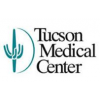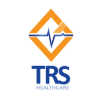The TMC Emergency Department is the busiest Emergency Department in Southern Arizona, seeing at least 95,000 patients a year between both the adult and pediatric ED.
We have a total of 54 beds separated into 4 pods (North, South, East, and West). Patients are placed into pods based on their triage acuity.
The staffing ratio is 1 : 2 to 1 : 4 depending on the acuity of the patient. We follow the Emergency Severity Index (ESI) Guidelines for triage of all ER patients.
We see a variety of patients within the department everything from sore throats and simple lacerations to respiratory failure and STEMI patients.
TMC has earned certification as a Comprehensive Stroke Center, accreditation as a Chest Pain Center, and the Gold Plus Achievement Award for stroke programs from the American Heart Association / American Stroke Association.
There is a separate Behavioral Health Observation Unit located within the Emergency Department. The ED embraces the Lean Methodology and strives for a culture of continuous process improvement to create the best patient care experience for our community and a work environment that excels in teamwork and collaboration.
All nurses are required to be CPR, ACLS, PALS, CPI and NIHSS certified.
SUMMARY :
Coordinates patient care planning with other disciplines utilizing the principles of the nursing process and critical thinking skills in order to maintain patient safety and well-being.
ESSENTIAL FUNCTIONS :
Provides direct patient care, evaluates outcomes, consults with other specialists as required and adjusts nursing care processes as indicated to ensure safe patient care.
Writes or obtains initial nursing histories, assesses patients' conditions and develops individual care plans; maintains patient documentation.
Receives and reviews preceding shift reports and floor nurse reports; makes complete rounds of all units, and notes patients' condition.
Notifies appropriate physician regarding any unusual or unexpected events or problems requiring direct physician consultation.
Works with other members of the interdisciplinary patient care team, implements and reinforces patient instructional needs with patient and family offering informational material and pointing out special areas of concern.
Evaluates outcomes of patient care, consults with other specialists as needed and adjusts nursing care processes as necessary to ensure optimal patient care.
Identifies and resolves workplace health and safety issues.
Provides appropriate, direct patient care utilizing appropriate aseptic techniques.
May manage IV lines, ensure that sterile techniques are adhered to, and oversee patient movement and positioning to ensure that the patient is handled in a medically safe manner.
May perform the administration of pharmacological vasodilator medications for the purpose of nuclear myocardial perfusion imaging;
complies with examination competency as defined in the Imaging Services Practice Standards.
Complies with policies, procedures, regulations, and standards and takes corrective action when violations occur.
Orients, instructs, and educates assigned personnel.
MINIMUM QUALIFICATIONS
EDUCATION : Graduation from a qualified, nationally-accredited nursing program. ( Some positions may require additional training related to specific skill area, such as EP, which requires instructional programs in intra-cardio echocardiogram and electrophysiology, which includes 30 ablation procedures.)
EXPERIENCE : One year of nursing experience in an acute care setting preferred.
LICENSURE OR CERTIFICATION : Current RN licensure permitting work in the State of Arizona and Basic Life Support (BLS) certification required.
Some departments such as OR, Ambulatory Surgery, Pediatrics / PICU, PACU, and GI Lab will require advanced life support certification (ACLS and PALS).
KNOWLEDGE, SKILLS AND ABILITIES :
- Knowledge of direct patient care and critical care procedures and techniques, tools, and responses required to ensure optimal patient care.
- Knowledge of exam indicators, contraindications and patient preparation.
- Skill in communicating in a clear and concise manner with staff involved in critical care, and physicians to ensure the proper care of patients.
- Skill in reading 12-lead EKG.
- Skill demonstrated in assigned disciplines such as EP, directly involved in patient care.
- Ability to read and interpret documents such as safety rules, operating and maintenance instructions, and procedure manuals.
- Ability to complete routine reports and correspondence.
- Ability to listen and accurately interpret others’ communication or instructions to take appropriate action.
- Ability to speak and communicate effectively.
- Ability to define problems, collect data, establish facts, and draw valid conclusions.
- Ability to interpret an extensive variety of instructions and deal with several abstract and concrete variables.








